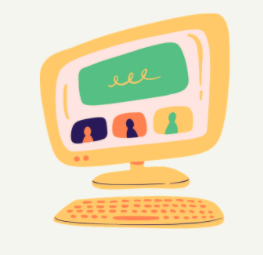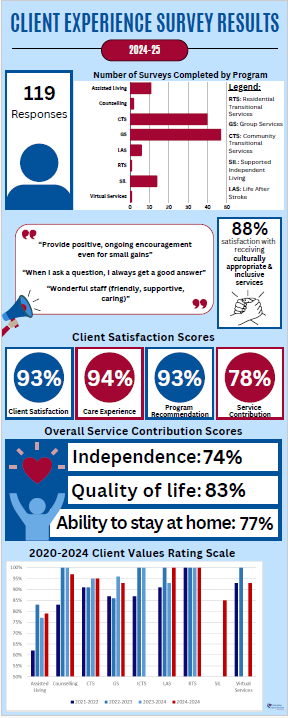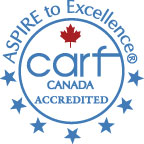Services
Home
Dale Brain Injury Services
Dale Brain Injury Services is an internationally recognized community based rehabilitation organization that provides exceptional services to individuals and families living with the effects of an acquired brain injury, including stroke.
Our services are high quality, client-centred and focused on the individual needs of adults affected by an Acquired Brain Injury (ABI). By providing services that are accessible, evidence-based and responsive to the changing needs of our clients, our community and our partners, DBIS exists to support people with brain injuries to enrich their lives through developing skills and making connections.
The overall focus of our rehabilitation services is on supporting successful community reintegration through increased independence and improved quality of life in the areas of Wellness, Interpersonal Skills and Meaningful Activities (WIM Rehabilitation Framework). Consistent with Dale Brain Injury Services’ philosophy and aligned with best practices, all services are person-centred, goal-driven, strengths based, least intrusive, evaluated, and provided in a respectful, ethical manner. Services are provided using a collaborative and wrap-around approach to identify needs, enhance capacity in the client and their support system, provide education, skills training and service coordination, and to make connections to appropriate services and community resources as required. We also offer short term Respite Services, which support care partners to have time to meet their own needs or have a break. Alternatively, Respite Services may assist a person with a brain injury with support during a crisis, or during recovery from illness/medical procedures.
DBIS’ WIM Rehabilitation Framework:
Wellness refers to achieving a state of physical, emotional and spiritual health by engaging in activities and performing tasks that are consistent with the individual’s personal goals and values and with the recommendations of support givers.
Interpersonal Skills refer to demonstrating the social skills required to interact effectively with others in the individual’s residence, immediate environment and larger community. These skills include communication and conversational skills, exhibiting care and concern (empathy) toward others, seeking and maintaining friendships and deeper relationships and resolving conflicts.
Meaningful Activities refer to identifying and participating in activities that are personally meaningful to the individual and that are consistent with their goals and values. These activities can include leisure/recreation, education, vocational and volunteering.









